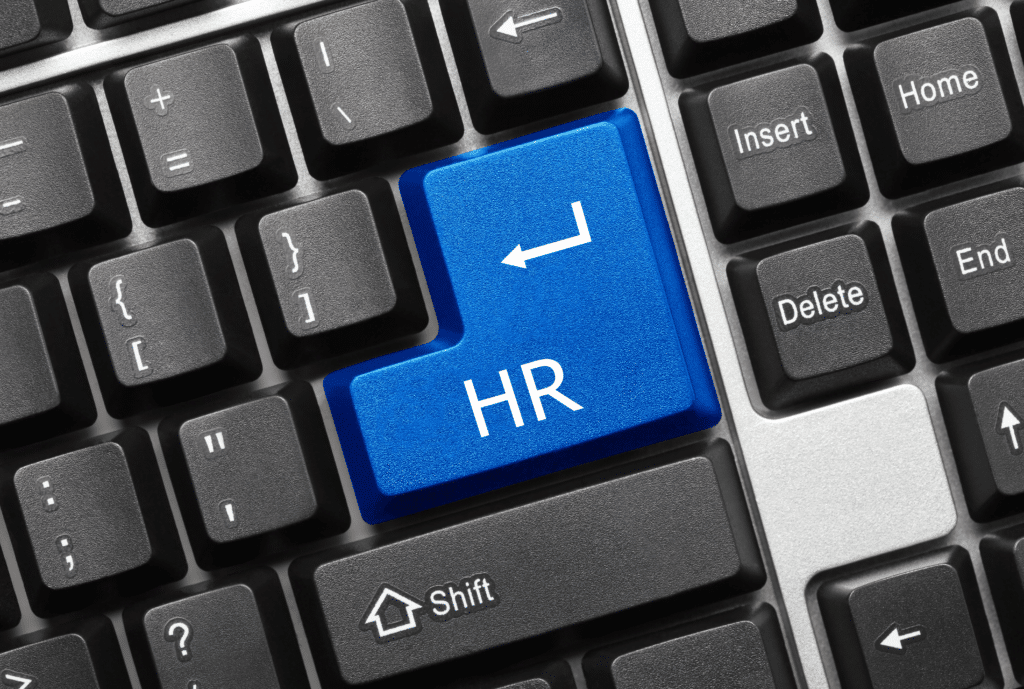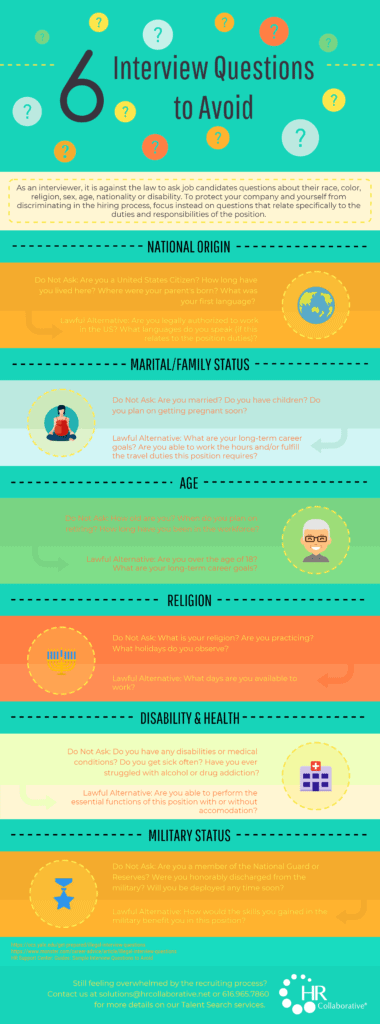Examining the State of Technology in HR

Technology is at the forefront of the workforce in many different ways—and HR is no exception. However, technology in HR goes far beyond your standard payroll software, and innovations are constantly emerging.
The HR tech market was valued at $37.66 billion in 2023, and that figure is only expected to grow. Let’s explore some of the most popular types of HR technology and how you can use them to accelerate your organization’s growth.
Why Use Software for HR Management
Software has become essential for making HR more manageable and efficient. With the work landscape constantly in flux, 83% of HR leaders say technology in HR has enabled them to be more flexible and responsive to shifting needs. It also saves them time, improves employee engagement, and can reduce turnover.
In the face of a labor force that continues to shrink, it’s important to retain and cultivate the talent your workforce currently has. HR management software can make this process easier—so you can invest more in your employees rather than spending extra money on the turnover process.
However, there are multiple different types of software for HR management. Here are some of the most common applications we see the top companies using.
Most Valuable HR Applications
Payroll Management Software
Payroll can be a time-consuming process and prone to human error. Many companies outsource the process altogether. However, outsourcing can make it easy to lose the line of sight on your payroll expenses. Rectifying errors with a third-party provider also takes a significant amount of back and forth.
Payroll management software makes it easier to complete payroll on time, every time. For organizations still manually processing payroll, this software is a game changer. Companies using payroll software report seeing 31% fewer errors in the payroll process.
These systems help reduce the complications like tax or benefits withholding. They also make it easier for HR teams to file and distribute tax forms such as I-9, W-2, and 1099.
In short, it makes paying employees easier (which everyone will be excited about) and maintaining compliance a breeze.
However, payroll management software is often the first and last thing people think of when it comes to technology in HR. There is a wide range of human resource management software beyond payroll that can streamline the entire employee experience—for both the HR specialists and staff.
Recruiting Software
To borrow an adage sales teams often use, “time kills all openings.” In today’s competitive labor market, employers can’t afford to spend weeks (or even days) moving a candidate through the hiring process. Top talent is in demand and often in the running for multiple roles.
That’s why there’s a growing number of tools that can make the recruitment process easier and faster. Some of these tools include:
- Application tracking system (ATS): These platforms make it easier to track job applications and distribute postings from a single, centralized location in your database.
- Candidate relationship management (CRM): In the past, keeping candidates up to speed with the application process was extremely challenging and frequently resulted in frustrated candidates. Candidate relationship management software makes it easier to track exactly when and how to reach out to candidates at any point in the application process.
- Asynchronous video interviews: One-way video interviews offer candidates flexibility in interviewing and an opportunity to make a memorable first impression. With these tools, candidates don’t have to worry about sneaking away from their current workplace during the day for a live interview. They also compress the timeline for first-round interviews for the employer—a win-win for everyone.
- Pre-hire assessments: Used wisely, hiring assessments can take the guesswork out of the hiring process. They provide organizations with quantitative data to assess cultural fit or the key skills they need for your open position.
- Onboarding software: A comprehensive onboarding process has several touchpoints. Onboarding software makes it easier for new hires to fill out any required paperwork and learn foundational company policies and processes in a fraction of the time they would need to do it manually.
Talent Management
Talent management software helps organizations manage and optimize their workforce in multiple ways. It also helps employees understand policies and keep track of their own performance. A few platforms that HR teams choose for talent management include Workday, Eddy, HR Partner, and Bullseye Engagement.
A quality talent management application can support everything from performance management to recruitment onboarding. They’re also excellent tools for workforce analytics such as performance, turnover, and other KPIs.
Data Recording and Analytics
Tracking the metrics you need for HR can be challenging to do manually. That’s where HR data analytics tools come in handy. Whether it’s for keeping up with employee engagement or tracking certification and compliance statistics for your organization, HR-oriented data recording and analytics tools make it easier to make data-driven decisions.
Some of the data analytics tools HR specialists use include intelliHR, Tableau, Qualtrics, and ChartHop. All of these tools have different specialties, such as deep data analytics, employee engagement and ease of use—and our team can help you figure out which one may be best for your organization.
Learning Management
Learning management systems (LMS) allow companies to create and customize educational courses and training programs that their employees need to do their jobs effectively. This makes them essential for professional development and keeping up with certifications and other compliance measures.
These software platforms often come preloaded with content applicable to a specific industry or professional environment. Some allow companies to customize the types of courses and training they offer and apply their own company’s branding, or upload their own content that they’ve developed in-house.
Many have professional development tracks and gamification features that encourage employees to grow their knowledge. These features can often be paired with performance management software to further incentivize employees to upskill and reskill. Some platforms include both—these are referred to as Performance Learning Management Systems (PLMS).
Employee Engagement and Recognition Software
The right HR apps can even make it easier to track and improve employee engagement. Employee engagement and recognition software helps leaders and managers recognize outstanding performance and reward employees who are doing their jobs well and exemplifying organizational values.
This regular and standardized approach to recognition can increase employee engagement and satisfaction. Similarly, recognition can make employees 18 times more likely to produce great work.
One example of an application that supports employee engagement is Terryberry. They offer employee recognition and awards that help employees feel valued and seen. It offers peer recognition features, service awards, health and wellness programs, and much more to help employees thrive at their organization.
HRMS/HCM
Human Resource Management Software (HRMS) and Human Capital Management (HCM) software combine many features from the software we’ve listed above into a single, integrated platform. Organizations of all sizes can benefit from using HRMS software, but it’s invaluable for companies that have multiple locations or numerous departments and employees.
Although HRMS and HCM applications perform many of the same functions, HCM apps generally offer more extensive functionality. By contrast, HRMS systems are focused more on helping companies streamline and automate their HR responsibilities.
Common HRMS and HCM applications include:
- SAP SuccessFactors
- Workday
- UKG
- Paylocity
- Paycom
- Rippling
- BambooHR
- iSolved
- Personio
- Gusto
What’s New in HR Technology
AI Benefits and Pitfalls
The rapid growth of business automation and generative AI (GenAI) has impacted HR, just like every other business function. Most HR applications now include some type of AI feature—whether that’s for collecting data and employee feedback or saving HR specialists time answering staff queries about basic policies and document needs.
However, AI also comes with potential compliance risks—especially around bias. For example, Amazon’s infamous in-house recruiting tool showed bias against women.
Much of the issues with AI use in HR stem from training data that reflect historical biases and biases of the system’s designers. Another major issue comes from misunderstanding how the tools work, especially GenAI. Tools like GenAI are excellent aids for subjective work, but they are not designed for objective work, such as creating a handbook compliant with all state and federal laws.
In fact, laws and regulations are being discussed that could significantly impact how HR uses AI.
Hybrid Work Experiences
Hybrid and remote work models are more desirable than ever for employees, with over 70% saying they prefer hybrid work. Many workers are now prioritizing flexibility over pay when job seeking. For some organizations, having a hybrid or remote work environment can give them a competitive edge in the job market.
Certain types of HR technology can make it easier for companies to support hybrid work models. For example, cloud-based HR systems provide a single, centralized platform for HR processes.
Collaboration tools make it easier to track progress, share ideas, and manage files from anywhere—whether your employees are in the office or on the other side of the country. While collaboration software has historically fallen to IT to manage, their impact on employee experience means HR should have a seat at the table when discussing their implementation.
Compensation Management Applications
Having a strong compensation package is still at the forefront of attracting and retaining top talent. Many organizations rely on industry reports for compensation benchmarking. However, this data is often self-reported and unverified. It also doesn’t factor in workers that move across industries.
Compensation management software allows HR to benchmark their organization’s data against validated, cross-industry, and cross-regional data to make better-informed decisions about the types of compensation they can offer.
These apps go beyond determining salaries, however. They can also help HR make informed decisions about retirement contributions, insurance coverage, tuition reimbursement, and more. They’re becoming critical tools for any organization looking to ensure pay equity for their employees.
Succession & Career Pathing Software
The sansdemic has led to fewer employees being active in the workforce and a shift toward automation in many different roles. With fewer qualified candidates, it’s becoming more essential for companies to use software that helps them set up succession plans and career pathing programs.
Succession planning and career pathing software helps companies identify potential internal candidates by referencing performance data and experience levels. This makes it easier to set up an employee for success if they’re selected to take on a new, high-level role in their company or by providing them with lateral movement that expands their skill sets and reinvigorates their motivation.
Total Workforce Intelligence
Total Workforce Intelligence (TWI) platforms consolidate the methods organizations use to manage their workforce. They analyze job postings, resumes, talent profiles, and even census data to learn more about the skills and talent availability in the market at any given time.
Leveraging TWI data allows organizations to make informed decisions around workforce planning, hiring, and training. This can lead to a more productive workforce and help companies source employees from less traditional backgrounds.
Find Experts to Help You Implement HR Technology
HR Collaborative’s fractional HR consultants are experts in every facet of human resources, including the best and newest HR technology tools. Connect with us today and we’ll help you find the technology that helps your organization soar.
Share This Article
































































































